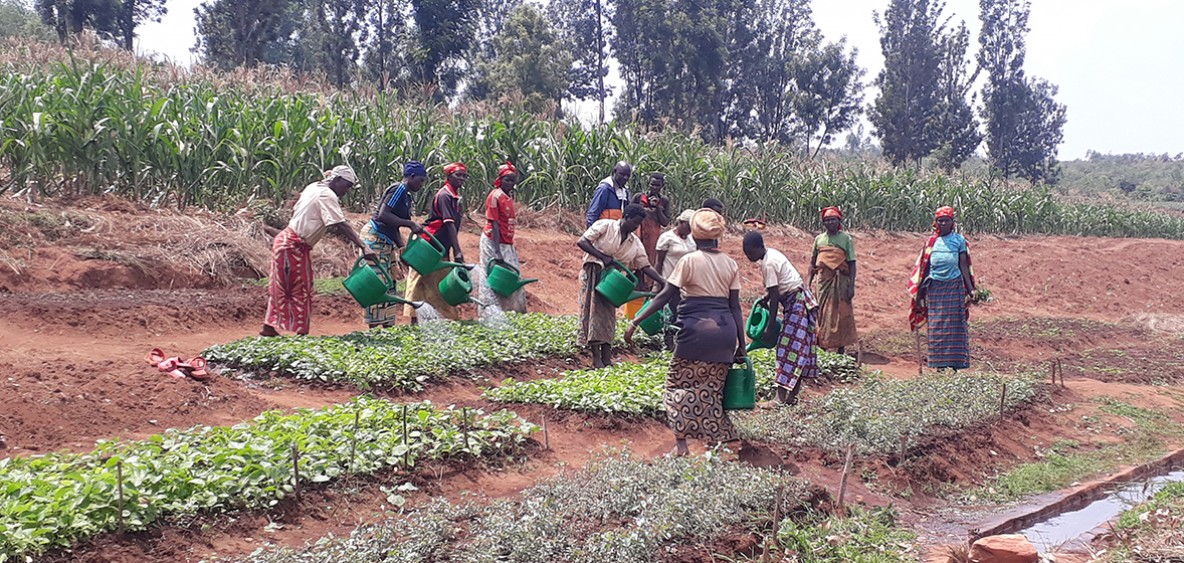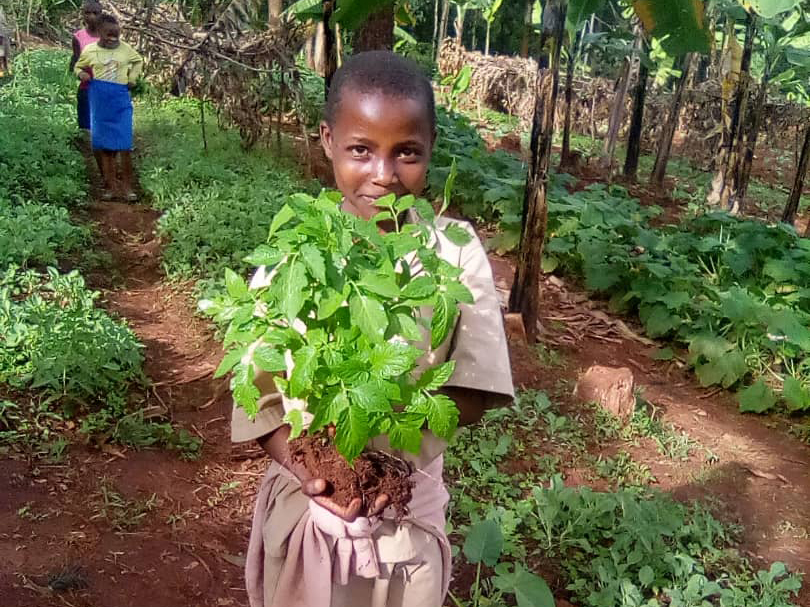
Market gardens and fruit trees are helping farmers in Burundi feed their families, earn an income, and restore the land.
Agriculture in Burundi has traditionally consisted of coffee, bananas, cassava, sugar and cotton. But in recent years, because of nutrient-poor soil, farming on fragmented land, and unsustainable agricultural methods, the production of these crops has declined. A lack of technical know-how has prevented farmers from reversing this deterioration.
Burundi’s land degradation and the ensuing low agricultural output are made worse due to climate change, which is causing unprecedented droughts, occasional flooding and higher temperatures.
These calamities have led to declining food security, which keeps many Burundians trapped in poverty and widespread malnutrition.
The RFS Burundi project, implemented by the Ministry of Agriculture and Livestock with support from the Food and Agriculture Organisation (FAO), is helping farmers reverse this trend by providing essential skills and technical knowledge in soil and water conservation. Farmer field schools have served as the primary platform for introducing communities to new techniques and practise, including contour planting with fruit trees, stabilising riverbanks with bamboo and, most recently, planting market gardens in their own backyard.
Market gardens produce fruit and vegetables on a small scale, primarily for household use. These gardens put much-needed food on the table and provide a direct avenue for improving community food and nutrition security. They also provide an essential source of income for families who sell their surplus produce to local markets.
.jpg)
Market gardening is particularly appealing for women and youth farmers because it requires minimal hard labour. Training and provision of materials are often targeted toward women and youth farmers and take place in inclusive and accessible areas, like school grounds.
In addition to market gardens, the RFS project helps communities plant fruit trees through training and provision of seedlings and planting materials. The yields of these trees are a welcome food source for households and school nutrition programmes and, like the market gardens, also provide an additional source of income.
Beyond food and nutrition security, fruit trees provide crucial environmental benefits to the landscape. With strong root systems, fruit trees stabilise the soil, preventing soil erosion and increasing the soil’s ability to absorb and retain water, produce nutrients for plants, maintain high levels of organic matter in the ground and moderate soil temperatures. Fruit trees also play a valuable role in combatting climate change by increasing carbon sequestration.

The success of the new orchards and market gardens hinges on whether farmers and co-operatives have access to quality seeds. FAO collaborates with the Institute for Scientific Agronomics of Burundi (ISABU) to cultivate seeds and seedlings for the gardens and fruit trees.
Throughout the project, ISABU aims to produce 3,6 tonnes of 12 different high-value vegetable seeds along with a variety of fruit seedlings, including 100,000 avocados, 100,000 passion fruit, and 50,000 jack fruit seedlings.
At farmer field schools, master trainers demonstrate how vegetables should be grown in nurseries and transplanted to vegetable gardens. Farmers are trained in the ins and outs of applying pesticides, weeding and harvesting. Once harvested, trainees are shown how to preserve their valuable crops.
Thanks to the practical nature of the training, women and youth farmers can apply the techniques they learned in farmer field schools to their own backyard.
The involvement of young people in market gardening has numerous benefits for the community. Youth farmers are leaving the agriculture sector at alarming rates, contributing to higher unemployment rates, food insecurity and rural-urban migration. “High youth unemployment is one of the biggest problems currently affecting African youth,” said Moses Abukari, IFAD’s Youth Focal Point for West and Central Africa.
By introducing youth farmers to new avenues for food and income security and providing the training and materials for them to succeed, RFS engages those frequently excluded from more traditional farming activities.
The hope is to
shift the mindset of a new generation of farmers. In Burundi, smallholder
farming has long been associated with poverty and scarcity. But with the right
inputs, training and methods, the future of smallholder farming can take on a
different form, one that is marked by productivity, sustainability and
resilience.
Subscribe to our monthly newsletter to receive updates on stories directly from the field across all our projects, upcoming events, new resources, and more.